Poetry Sunday: A Song on the End of the World
A Song on the End of the World
BY CZESLAW MILOSZ
TRANSLATED BY ANTHONY MILOSZ
On the day the world ends
A bee circles a clover,
A fisherman mends a glimmering net.
Happy porpoises jump in the sea,
By the rainspout young sparrows are playing
And the snake is gold-skinned as it should always be.
On the day the world ends
Women walk through the fields under their umbrellas,
A drunkard grows sleepy at the edge of a lawn,
Vegetable peddlers shout in the street
And a yellow-sailed boat comes nearer the island,
The voice of a violin lasts in the air
And leads into a starry night.
And those who expected lightning and thunder
Are disappointed.
And those who expected signs and archangels’ trumps
Do not believe it is happening now.
As long as the sun and the moon are above,
As long as the bumblebee visits a rose,
As long as rosy infants are born
No one believes it is happening now.
Only a white-haired old man, who would be a prophet
Yet is not a prophet, for he’s much too busy,
Repeats while he binds his tomatoes:
There will be no other end of the world,
There will be no other end of the world.
Warsaw, 1944
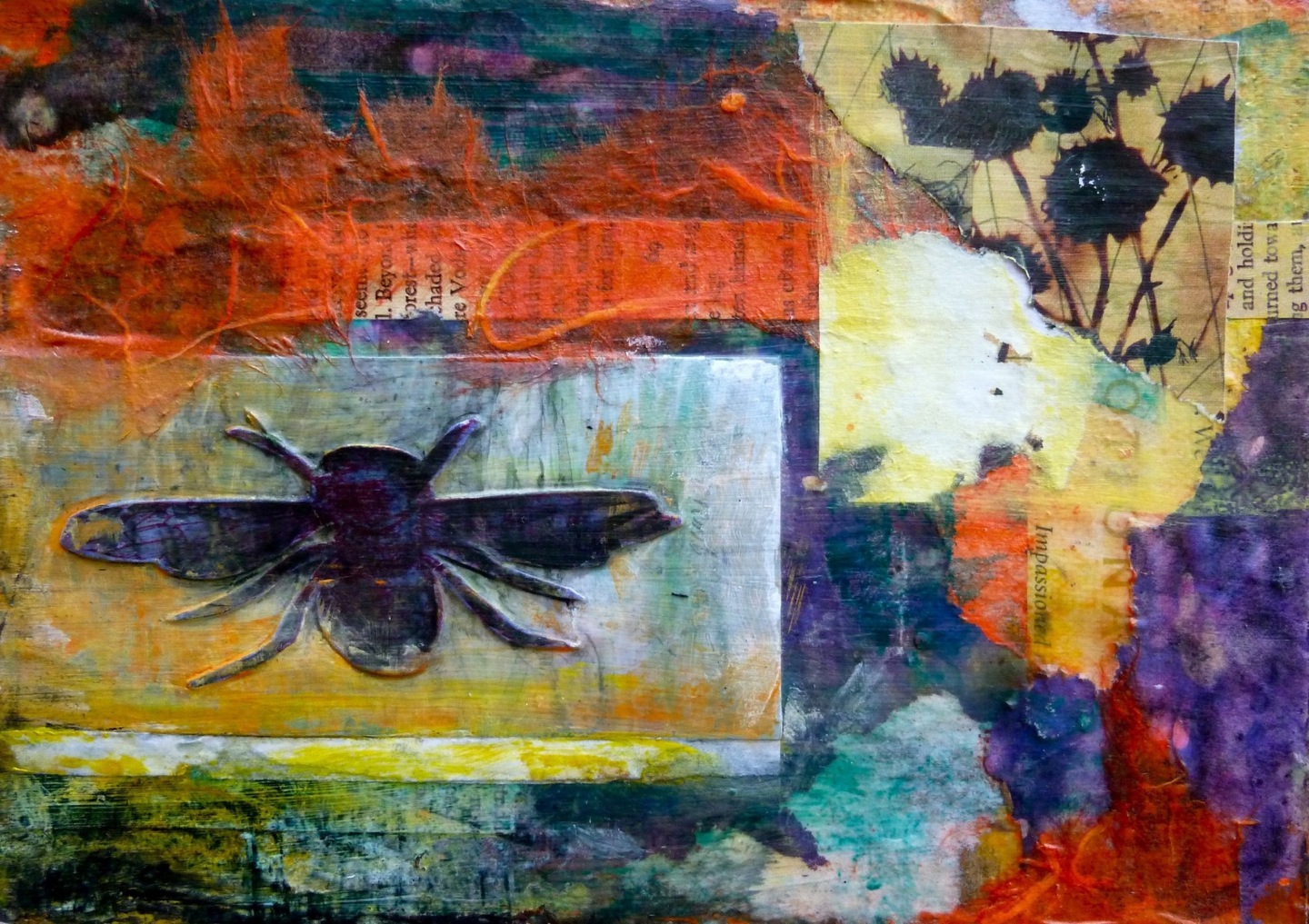
Bee Love and Marketing
My new TwoHoneys Bee Co. business cards arrived yesterday, and I have to say that I’m delighted by them. The thermal printing makes the bee’s raised wings look as if they’re shimmering. I didn’t expect that…and I don’t think the printer did either. We were so happy to open the box and see all that shimmering going on.
So, to celebrate, I’ve created a new series of long-sleeve t-shirts over at Cafe Press (patience with the Cafe Press site. I set it up myself this morning and it still looks pretty rough. But it works). I’ll be adding more wonderful swag as TwoHoneys progresses, so if you have an idea for a t-shirt or other cool marketing brilliance, send it on to me (liz@two-honeys.com), and I’ll try to make it happen.
(I’ve asked Nicola to create a t-shirt for TwoHoneys, and she has enthusiastically agreed. Which thrills me. We will not rush her, though. Creativity needs space. Nicola says it also needs to learn Photoshop.)
As a teaser, though—just so you get a sense of what’s coming—here’s one of Nicola’s newest collages (to see more of Nicola’s work, visit her beautiful website. Frankly, it’s worth the trip over there just to read the titles of her collages. Sometimes I go just for that):
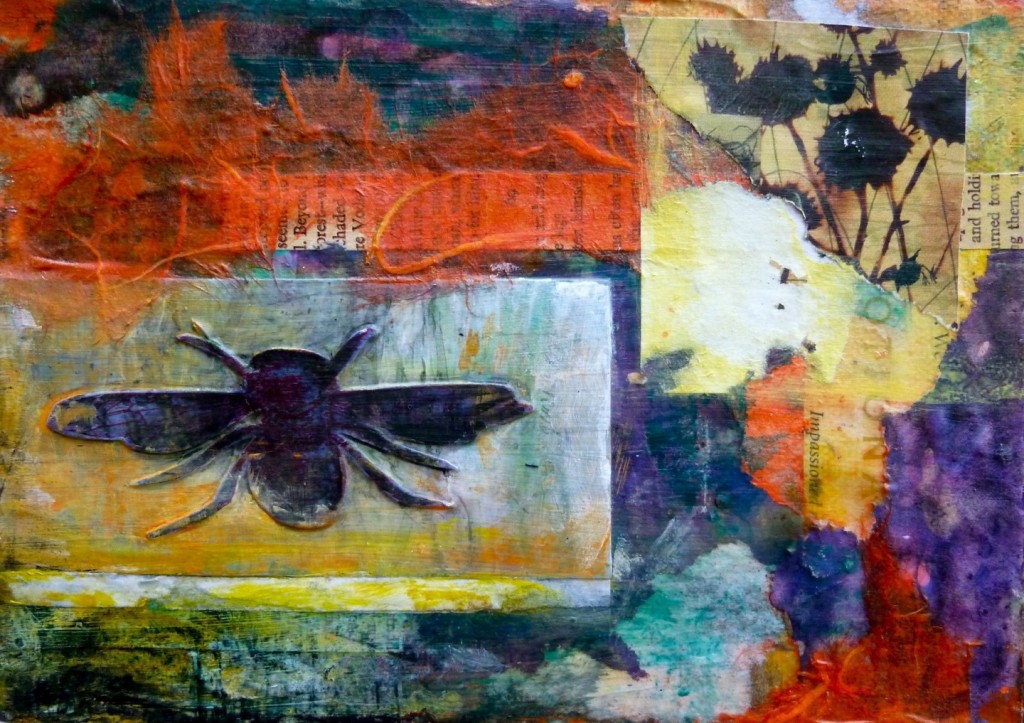

The Evolving Logo
Like the new logo? I think it’ll be more printer friendly…for t-shirts and business cards. I like it. As you know, Reader, I like things clean and simple.
Jerod and I are working on a new website, too. Clean and simple. Soon, you’ll be able to buy some awesome TwoHoneys t-shirts there. And a coffee mug. And a bumper sticker (really, I have no plans for coffee mugs or bumber stickers, but I might). And eventually…wait for it…wait for it…honey! And other cool things created by my bees and by my friends.
More importantly, I hope the website will lead Cincinnatians to TwoHoneys Bee Co. when they find swarms of bees or when they have honeybees sharing their homes with them.
Poetry Sunday: The Bees
The Bees
BY BRUCE MACKINNON
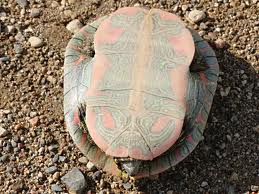
Yes. But I Cannot Go Belly Up.

Here’s my current dilemma: How can I get a bee business to steadily grow in a contained sort of way?
This is what happens: Along the way, some wonderful people learn that I keep bees and that I help other people begin beekeeping. And those wonderful people really really really want to keep bees, too. So they invite me to help them get started. Now, how do I say “Yes” to all these nice people while also keeping the business contained (which means keeping my costs down, my profits up, and my time well managed)?
Let me explain why this is a challenge: Not all of these wonderful future beekeepers live near me. Most of them live 30-40 miles away…and they don’t all live near one another either. I mean, if they all lived near one another, then most of my problem is solved. But some live 30 miles to the north; others live 25 miles to the east; another 20 miles south, in Kentucky. And next season, we hope to install 10-20 hives on the farm south of Lexington. And somehow I need to coordinate all these visits to all these hives once every 9-14 days.
Not only do I need to coordinate all of my visits to the hives placed in a certain region, but I also need to coordinate my visits with the keeper of the bees…the bee stewards…and most people aren’t available during weekdays to inspect their hives. Which means I could be driving hundreds and hundreds of miles each week…and at inconvenient hours.
So, yes, of course I can do it. But I can’t do it for free. I cannot go belly up just because I love bees and all these wonderful people. Which gets us into a tough spot—I have to charge for this service. Yes, there are all sorts of financial models for this…I just have to figure out which models make the most sense for my purposes. No matter how I cut it, though, some people will not like the way I answer “Yes.”
I won’t bore you further with this, Reader. Just want to let you know what I’m wrestling with now that the bees have slowed their activity. The bees and I are all turning inward and preparing our big plans for spring.
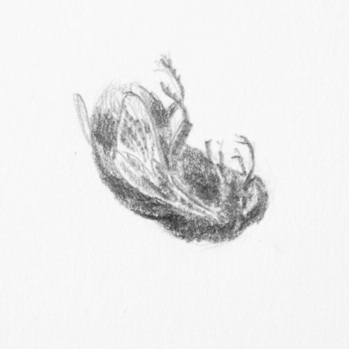
A Nuc Hive of Dead Bees :(
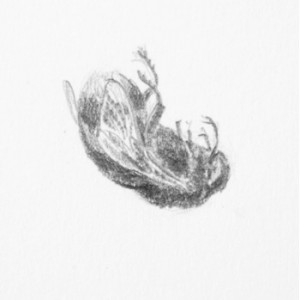
I revved up the table saw and made three inner covers for my nuc hives, and I cut a round opening in each through which I can feed the bees their syrup.
But when I opened the hives to give the bees their snug, new, inner covers, I discovered one of the hives dead. A dead hive is soooo quiet. Creepy. And disheartening.
Wow. The dead hive really surprised me…this is not the time of year for a colony to completely die off. And the other nucs, all of which have the same arrangement, were doing fine. So, I presented all the living hives with their fancy new inner cover and a new jar of syrup, and they’re all still flying.
After sort of reviewing the situation to figure out what happened, I scraped the pile of dead bees into the grass. I’m leaving the comb from that hive in its box and out in the sun so wax moths don’t destroy it before winter hits us.
What happened to the Nicola hive? I’m not sure, but the comb and all the dead bees were wet. Either condensation (warm days + cold nights = condensation build up) had collected on the top cover and dripped onto the bees, or (and this is my suspicion) I didn’t let a proper vacuum seal the inverted jar of syrup I placed atop the hive, and it dripped onto the bees. And they died.
Either way, I guess I killed them. Dang.
I’ve learned to cut myself a lot of slack when it comes to making mistakes that cost either bees or honey. It’s disappointing, but I try to consider these lessons learned. And I’ve found that it’s good for me to immediately get over the situation…analyze the hive, say some sort of thank you to the bees, and scrape them out onto the ground. Then I clean up the equipment for the next colony.
Poetry Sunday: Equinox
Equinox
BY ELIZABETH ALEXANDER
Poetry Sunday: Intimate Detail
Intimate Detail
BY Heid E. Erdrich
Late summer, late afternoon, my work
interrupted by bees who claim my tea,
even my pen looks flower-good to them.
I warn a delivery man that my bees,
who all summer have been tame as cows,
now grow frantic, aggressive, difficult to shoo
from the house. I blame the second blooms
come out in hot colors, defiant vibrancy—
unexpected from cottage cosmos, nicotianna,
and bean vine. But those bees know, I’m told
by the interested delivery man, they have only
so many days to go. He sighs at sweetness untasted.
Still warm in the day, we inspect the bees.
This kind stranger knows them in intimate detail.
He can name the ones I think of as shopping ladies.
Their fur coats ruffed up, yellow packages tucked
beneath their wings, so weighted with their finds
they ascend in slow circles, sometimes drop, while
other bees whirl madly, dance the blossoms, ravish
broadly so the whole bed bends and bounces alive.
He asks if I have kids, I say not yet. He has five,
all boys. He calls the honeybees his girls although
he tells me they’re ungendered workers
who never produce offspring. Some hour drops,
the bees shut off. In the long, cool slant of sun,
spent flowers fold into cups. He asks me if I’ve ever
seen a Solitary Bee where it sleeps. I say I’ve not.
The nearest bud’s a long-throated peach hollyhock.
He cradles it in his palm, holds it up so I spy
the intimacy of the sleeping bee. Little life safe in a petal,
little girl, your few furious buzzings as you stir
stay with me all winter, remind me of my work undone.
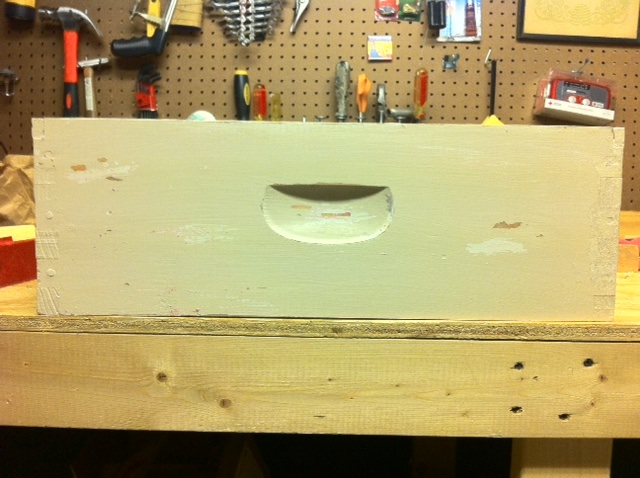
Updates 11/21/11
UPDATES:
- The guy who wanted bees removed from his reconstruction project called. The general contractor for the job found an exterminator to kill the bees. It’s done.
- So, for $600, the bees were killed. Now the homeowner has to go in and remove comb and whatever honey may remain after robbers (of the honeybee and yellow jacket and hornet and ant varieties) have had their fill.
- Too bad. It would have cost much less to hire me, and even if the bees had died, we’d still have viable comb and edible honey.
- The guy liked me, though, and said he could tell I know what I’m talking about. And I do.
- I ordered my next beekeeping hat. It’s on its UPS way to my head right now.
- And, noooo, I didn’t construct the inner covers for my nuc boxes yesterday. I don’t think I can do it today, either. It’ll have to wait until tomorrow.
- We’re planning on painting the wood floors in our Waco, KY farmhouse. When we were in New Mexico, we saw some painted floors that made me melt with happiness.
- I’ve been practicing the floor-painting technique on bee boxes…good idea, huh? That way, the woodenware is protected with paint, they look awesome, and we can now base our paint-color decision on the resulting boxes…which are made of pine, just as the floors in the farmhouse are pine.
- I’ll show you the results, and then you can paint your floors however you like. :)
- Below is box #1:


Okay, in real life, these do NOT have a greenish cast. I think that’s coming from the overhead fluorescent lights in the basement (I can’t tell you the trouble I have spelling “fluorescent.” I don’t even know how to get started on it). Bad idea. But it’s dark out right now…maybe later in the day I’ll take this outside and take a picture for you in honest-to-goodness sunlight.
Don’t worry, Reader, we will not choose floors with a greenish cast for the farm. That would be nauseating. Plus, this color is waaay too light for a farmhouse floor. Things get dirty on a farm. For crying out loud…half the time we’re there, we wear muck boots.


